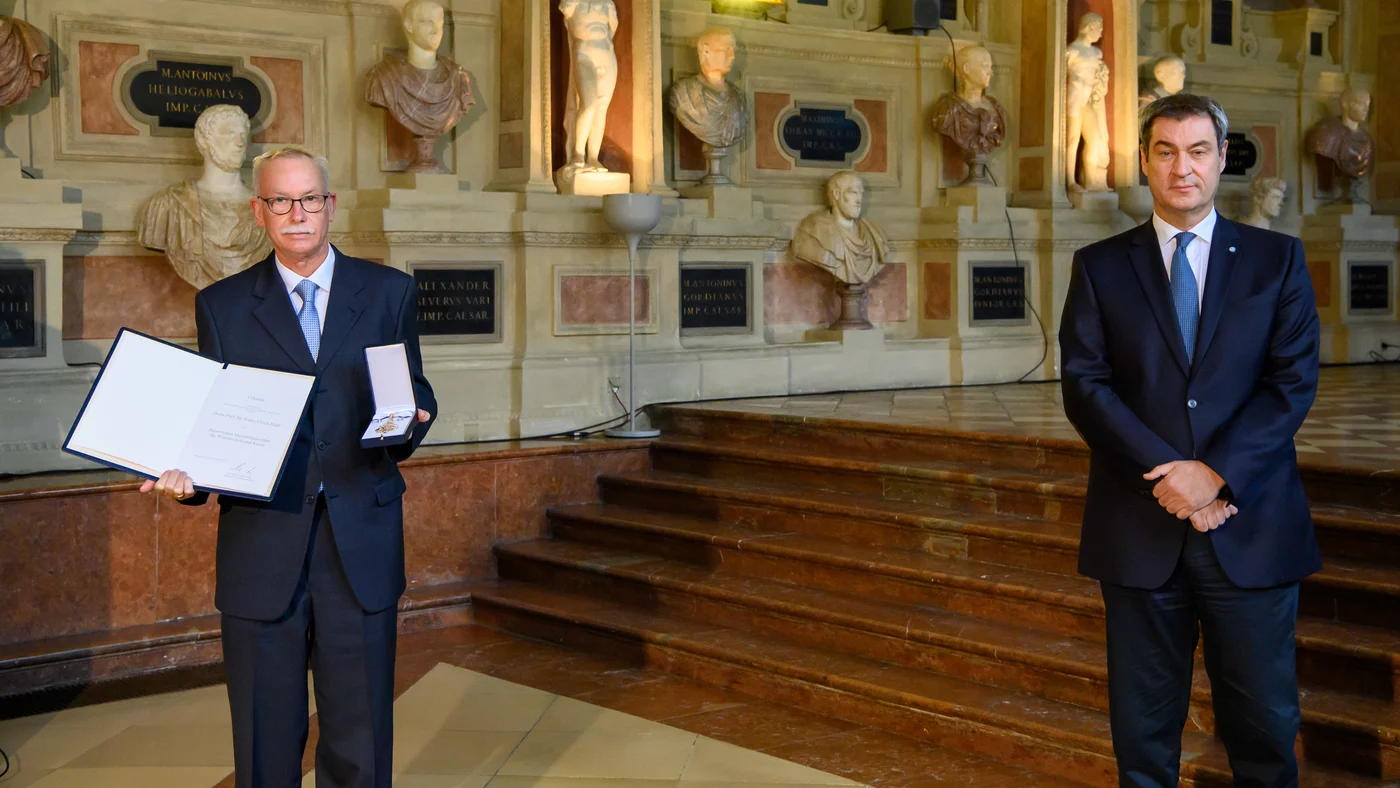Max Planck scientist receives Bavarian Maximilian Order

F. Ulrich Hartl, Director at the Max Planck Institute of Biochemistry in Martinsried was awarded the Bavarian Maximilian Order for Science and Art.
F. Ulrich Hartl, director of the research department "Cellular Biochemistry" at the Max Planck Institute of Biochemistry in Martinsried, received the Bavarian Order of Maximilian in the Munich Residence on November 10. With this award, the Free State of Bavaria honors the highest scientific and artistic achievements. F. Ulrich Hartl investigates how proteins fold properly and what role misfolded structures and protein aggregates play in aging and neurodegenerative diseases such as Alzheimer's and Parkinson's: "I feel very honored to receive this recognition." In addition to Hartl, nine other personalities received the award this year, including the president of the Max Planck Society, Martin Stratmann.
Proteins can only fulfill their complex tasks in the organism if they are folded correctly. However, correct folding often requires helper proteins, the so-called molecular chaperones. The researchers led by F. Ulrich Hartl are investigating the structure and function of these molecules. For the "chaperonin" subgroup, the scientists have already been able to show in detail how they work: They encapsulate proteins during their folding so that aggregates cannot form. Such aggregates can be the cause of neurodegenerative diseases such as Alzheimer's, Parkinson's and Huntington's disease. F. Ulrich Hartl and his team are also searching for strategies to prevent proteins from forming aggregates, which one day might become useful in treating these presently incurable diseases.
